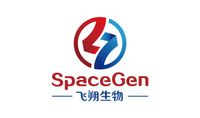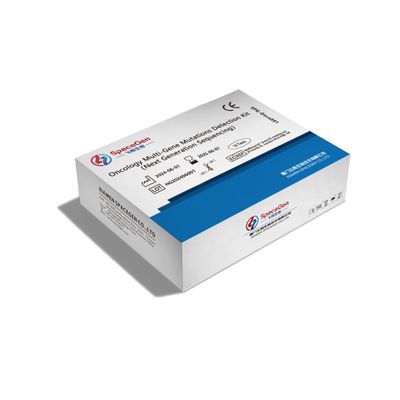

- Home
- Companies
- Xiamen Spacegen Co., Ltd.
- Products
- SPACEGEN - Model SPG-Onco001 - Oncology ...

SPACEGEN - Model SPG-Onco001 -Oncology Multi-Gene Mutations Detection Kit (Next Generation Sequencing)
Detection Gene:EGFR,KRAS,BRAF,PIK3CA,NRAS,HER2,MET,AKT1,KIT,PDGFRA,ALK,ROS1,RET(Detetion of 13 genes) Detection Significance:Guiding the selection of targeted drugs for lung cancerTumors are abnormal proliferations of normal tissue cells, characterized by uncontrolled growth and formation of a neoplastic mass. Among these, cancer specifically refers to malignant neoplasms with invasive and metastatic properties, driven by multiple tumorigenic factors including genetic mutations, environmental carcinogens, and lifestyle-related pathogenic mechanisms Gene mutations caused by environment and heredity (including point mutation, deletion, insertion, copy number gain, gene fusion and so on) may lead to the division and growth of normal cells out of control and finally induce the formation of tumors.
Targeted drugs are able to target the pathologic molecules in cancer cells caused by specific gene mutations, which will maximize the drug efficacy and minimize the side effects. Therefore, the detection of the patient's gene status can contribute the clinicians to select suitable target drugs.
The occurrence of tumor often involves several or even a dozen oncogenes or cancer suppressor genes. The study showed that 47.5% of Asian patients with non-small cell lung cancer carried EGFR mutations, followed by KRAS at 10%. For Europeans or Americans, 29% of NSCLC patients carry KRAS mutations, and only 19% have EGFR mutations. In addition, common non-small cell lung cancer driver genes include ALK, BRAF, ROS1, RET, MET, HER2, etc.
Core Technology:RingCap®
Applicable Disease:Non-small cell lung cancer,Colorectal cancer,Gastrointestinal stromal tumor
Instruments Validated:Illumina, Ion torrent, MGI, etc.
Sample Type:Tumor tissue,Peripheral Blood,Pleural effusion &Ascites
Qualification:ISO13485 certificate, CAP,CE marking
Pack Size:16 Tests/Kit,32 Tests/Kit
CLINICAL DATA
This clinical trial adopts a blinded comparative trial design, and the FDA-approved listing of Thermo Fisher Scientific Oncomine DX Target Test(NGS), The total coincidence rate of the two methods for detecting genes was 99.92%
Personalized treatment:Patients with non-small cell lung cancer can undergo genetic testing before using targeted drugs to assist clinicians to judge the sensitivity of patients to drugs;
Monitoring drug efficacy and resistance: Patients who are resistant to targeted drug therapy and need to adjust their medication regimen.
1. Ease of Use: Based on the independent patent technology RingCap®, library preparation in 2 steps.
2. Fast Results:The library preparation takes only 3.5 hours.
3. High Sensitivity: Tissue sequencing depth up to 5000X, sensitivity up to 1%; cell-free DNA sequencing depth up to 20,000X, sensitivity up to 0.5%; RNA qualitative analysis as low as 20 copies/ul.
4. Comprehensive Coverage: Covers and detects relevant hotspot mutations in 13 genes ,applicable for non-small cell lung cancer, colorectal cancer, malignant melanoma, gastrointestinal stromal tumor.
5. Multiple Instruments: Reagents are compatible with mainstream NGS platforms .
